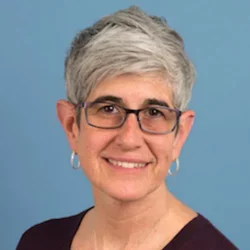Precision Health Program
Precision health has the potential to revolutionize patients' lives. Nonetheless, the challenge of extending genetic findings to a wide range of populations is a significant hurdle. The Precision Health Program is dedicated to establishing the necessary infrastructure for involving diverse populations in research. Our goal is to seamlessly integrate precision health discoveries and advancements, ensuring that they have a clinical impact that benefits everyone.
Services & Tools
The UCLA ATLAS Community Health Initiative stands as an exceptional repository of clinical and genomic data from patients within the UCLA Health system. More than 260,000 individuals have successfully completed the consent process, and of those, over 66% have opted in. To date, over 100,000 samples have been collected and genetic data are made available to UCLA approved researchers through cloud-based platforms. Learn more about data requests.
For identified data, view the Data and Informatics Tools available through UCLA CTSI to determine the services and consultations for your research.
Submit Your Online Request
Have questions on how to get started? Request services for genomic data through the CTSI ServiceNow portal.
Related Resources
- Institute for Precision Health at UCLA
- Center for SMART Health at UCLA
- Universal Consent - UCLA Patients interested in participating in the UCLA ATLAS Community Health Initiative can learn more about the consent process.
Program Aims
Aim 1. Increase enrollment of populations into the At Los Angeles (ATLAS) precision health biobank
- Together with CERP, engage the Los Angeles County Department of Health Services (DHS) to increase enrollment of populations in ATLAS.
- With Hub partners, establish best practices for engaging individuals of limited health literacy in research.
- With ISP and the Watts Rising Collaborative, develop and pilot an electronic pediatric assent process.
Aim 2. Develop educational materials and make recommendations for the disclosure of genetic results
- Engage stakeholders to inform development of a framework for meaningful communication of genetic finding.
- Develop and pilot methods to enhance provider understanding of clinically relevant genetic information.
- Evaluate outcomes of the disclosure process to identify patient, clinician and system-level factors.
Aim 3. Disseminate tools and knowledge
- Piloting a risk-based cancer screening program that will focus on germline variation in the BRCA family of genes across four separate diseases and piloting ROR across our Hub partners, which represent different populations, and creating methods for providers and patients to interpret these appropriately.
- In partnership with other CTSA hubs (UC Davis, University of Colorado), establish a working group to explore adaptation of these best practices across different health systems and health conditions. These results and developed products will be shared across the CTSA consortium.
Contact Us
For Precision Health questions, please contact the below personnel.
Maryam Ariannejad
Program Manager
marian@mednet.ucla.edu
Precision Health Leadership






Precision Health Staff

Precision Health Investigators












